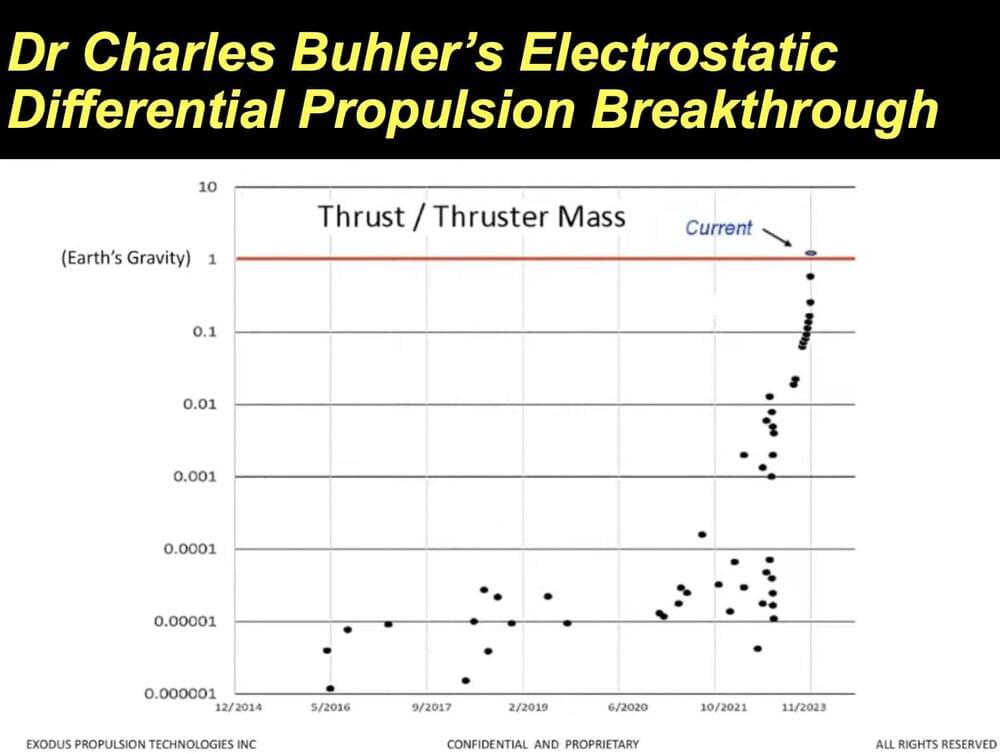Dr. Charles Buhler and Exodus Technologies claims that systems with electrostatic pressure differences or electrostatic divergent fields gives systems with a center of mass with non-zero force component (aka generate movement). Buhler is NASA’s subject matter expert on electrostatics. They want to move to demo the system in orbit. These kinds of claims are controversial but the work seems to be thorough. It will only cost about $500k to $1M to create a rideshare mission into orbit to test the system. The mass of an early orbital system would greatly exceed the active materials of the propulsion, which would reduce performance. High performance space propulsion would need to increase the active materials as a percentage of the mass of the craft.
Dr. Charles Buhler discusses an experimental propulsion results based on asymmetrical electrostatic pressure, in a device described in International Patent# WO2020159603A2. The device is described as a system and method for generating a force from a voltage difference applied across at least one electrically conductive surface. The applied voltage difference creates an electric field resulting in an electrostatic pressure force acting on at least one surface of an object. Asymmetries in the resulting electrostatic pressure force vectors result in a net resulting electrostatic pressure force acting on the object. The magnitude of the net resulting electrostatic pressure force is a function of the geometry of the electrically conductive surfaces, the applied voltage, and the dielectric constant of any material present in the gap between electrodes.
Dr. Buhler has experience working with electrostatic discharge & ESD safety for the Space Shuttle Program, the International Space Station Program and the Hubble Space Telescope Program. He was also a Co-Investigator for three NASA Research Announcements funded by the Mars Exploration Program, and is currently working on NASA’s Dust Project focused on utilizing electrostatic methods to remove dust from personnel and equipment that will be sent to the Moon through NASA’s Constellation Program.
